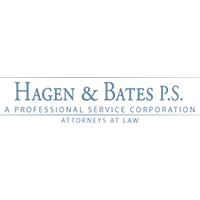 Pacific Beach White Collar Crime Lawyers, Washington
Pacific Beach White Collar Crime Lawyers, Washington
Sponsored Law Firm
-
 x
x

Click For More Info:
-
The Law Offices of Richard L. Cooper, P.A.
848 Brickell Avenue Suite 800 Miami, FL 33131» view mapDWI/DUI, Drug Trafficking, Felony Nationally Ranked Top 40 Under 40
With Richard L. Cooper you can expect a trusted confidant who will work diligently to fully understand your case and determine a road map to help you regain control of your life.
800-756-2781
Not enough matches for Pacific Beach White Collar Crime lawyer.
Below are all Pacific Beach Criminal lawyers.
Sponsored Lawyers
1-2 of 2 matches
Criminal, Personal Injury, DUI-DWI, Business
Since the firm was established in 1993, the skilled attorneys at Hagen & Bates P.S. have provided versatile, professional and effective solutions to a variety of our clients’ legal challenges. With over 40 years of combined experience, we are always here to provide the support and assistance you require. For his professionalism and ethics, principal attorney Wayne D. Hagen, Jr. has earned a BV® Distinguished Peer Review Rating by Martindale-Hubbell®. The unique talents, backgrounds and skills our attorneys bring to our law firm apply well to various areas of the law. With our proven courtroom skills in state and federal jurisdictions, we are experienced litigators who are prepared to do the research and understand the nuances of your case. We also have the skill to handle complex transactions.
(more)



 Richard L. Cooper Miami, FL
Richard L. Cooper Miami, FL AboutMiami Attorney at Law
AboutMiami Attorney at Law ServicesCriminal Defense
ServicesCriminal Defense


